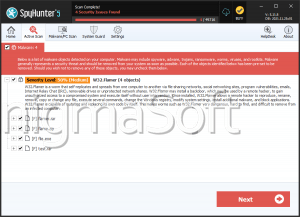Flame
In late Spring of 2012, PC security researchers all around the world encountered an unprecedented malware attack nicknamed Flame. This malware attack had its center in the Middle East and seems to have been conceived by a government agency in order to carry out espionage activities. This would not be the first time a government uses malware to attack a rival's infrastructure. For example, ESG malware analysts reported about Stuxnet, the infamous computer worm that attacked nuclear facilities in Iran. In fact, links have been detected between Flame and Stuxnet, both in certain aspects of their code and the fact that they were both used to initiate attacks against sensitive targets in the Middle East. Flame infections are no longer contained in the Middle East. As of August of 2012, this malware threat has infected numerous computers in Northern Africa, and infections have popped up in various Western countries.
Creating a short overview of Flame is particularly difficult because of its complexity. While Stuxnet was formerly considered as one of the most complex pieces of malware, Flame's code is more than twenty times as long. One of the main characteristics of Flame is that Flame hides its code in files with the OCX extension. These kinds of files are typically overlooked by security software that is not up to date. However, even in this respect Flame is designed to thwart PC security researchers. For example, McShield is a security application that scans OCX files. However, if Flame detects the presence of this program, Flame hides its code in TMP files instead.
Flame is a dangerous backdoor Trojan that can steal information from an infected computer and relay it to a third party. Due to the fact that Flame is almost certainly government sponsored, it seems likely that criminals have engineered Flame so that Flame will steal sensitive information from government-owned computers in order to relay it to another government's intelligence services. Flame is also designed to delete files from the infected computer's hard drive.
Flame is Incredibly Complex
Malware analysts have noted that flame is easily one of the most complex malware infections known today. In fact, even with months of studying its code, it is so obfuscated that PC security analysts have a hard time determining exactly the nature of a Flame infection. What is known is that Flame spreads very fast from one computer to another and hints at a technology that criminals may reverse engineer for their own purposes in the future.



Submit Comment
Please DO NOT use this comment system for support or billing questions. For SpyHunter technical support requests, please contact our technical support team directly by opening a customer support ticket via your SpyHunter. For billing issues, please refer to our "Billing Questions or Problems?" page. For general inquiries (complaints, legal, press, marketing, copyright), visit our "Inquiries and Feedback" page.